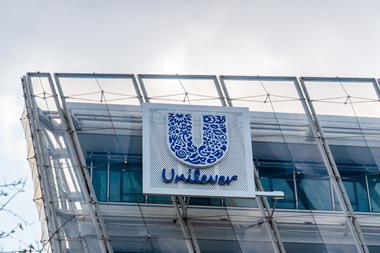Braced though fmcg was since the Competition & Markets Authority announced in January its intention to crack down on food and drink greenwashing, who knew the competition watchdog would be so bold as to single out behemoth Unilever as its first test case?
The CMA’s choice prompted an avalanche of hefty headlines, highlighting the maker of some of Brits’ favourite products – Dove, Marmite and Hellmann’s to name a few – will be investigated for potentially overstating how green some of its household and personal care brands are.
“Vague and broad claims, unclear statements around recyclability, and ‘natural’ looking images and logos,” were a few of the concerns raised by the CMA about certain products, and how they are marketed, in Unilever’s portfolio.
But would a business as big as Unilever take such a risk? Will the CMA prove the blue chip is hiding misleading green assertions in plain sight? And what are the potential ramifications for others?
Claims of greenwashing are often hurled at supermarkets and fmcg. In July, campaign group Feedback published a damning report saying the act was “rife” among the UK’s leading retailers and the brands they stock.
Sometimes the accusations have proved true. There are fmcg businesses guilty of overegging their environmental and sustainability (ESG) credentials. Brands big and small have been rapped by the likes of the ASA for extending their green truths in advertising campaigns, with the total number of ads banned for greenwashing tripling last year, according to The Independent.
What is greenhushing?
A crackdown by the CMA to ensure consumers are purchasing genuinely green products should be positive and prove the green labels shoppers buy into are what they claim to be. Yet it could also be counterproductive.
Greenhushing, the act of underreporting or concealing environmental and sustainable credentials to evade scrutiny, is on the rise. Some use it to their advantage, creating an illusion of bigger virtuous environmental efforts by reporting limited data. Others resort to greenhushing due to financial constraints, fearing they’ll be labelled greenwashers, despite genuine efforts, because the capital needed to stand claims up isn’t available.
Ultimately, greenhushing erodes consumer trust in genuinely green products.
So, the CMA’s finger-pointing could do more damage than good. Why would a business invest more than necessary in ESG initiatives and state claims of progress if they could be penalised down the line for making a potentially innocent mistake?
It can, however, be argued Unilever is unlikely to fall foul of the CMA’s investigation. It is serious about ESG, pledging a €1bn investment in a climate and nature fund by 2030. It has capital and research resource to pump into ESG and, like any giant corporation, is cautious when making claims, knowing how damaging mistakes can be to reputation.
Unilever, while expressing surprise and disappointment at the CMA’s announcement, has pledged co-operation. The company asserts its commitment to responsible claims, transparency, and a robust process to substantiate any assertions.
Jeopardy for fmcg’s green credentials
If Unilever is found ’guilty’ of overstating green claims, the whole industry may face a damaging spiral of mistrust and calls of ‘fake news’ from consumers, jeopardising the green credibility fmcg has gained and causing widespread consequences for brands, shoppers, and the environment.
Exclusive reseach comissioned by The Grocer showed consumers are already miffed – especially in the midst of a cost of living crisis – about paying higher prices for some ‘greener’ products. It’s no wonder then that over half would boycott a greenwashing brand.
Over the coming months, wary brands will likely reassess their ESG data and statements, possibly even removing claims (or greenhushing) in the meantime to avoid being the CMA’s next focus. The sector is on high alert, knowing the increasing importance of eco statements to them and consumers.
However, let’s not forget the results of the CMA’s most recent supermarket and fmcg probe, which was an investigation into allegations of sector profiteering during the cost of living crisis.
To keep it short: both supermarkets and manufacturers were cleared of wrongdoing…

























No comments yet